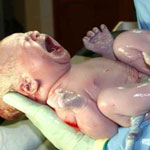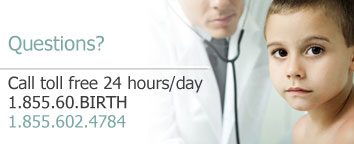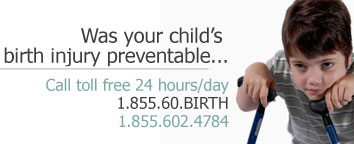Pitocin Linked to Some Birth Injuries
 Pitocin is a synthetic hormone that is sometimes used in the birthing process to induce labor, particularly in women who have passed their due date. It is a helpful tool that medical professionals can use to speed up labor that has stalled for various reasons. Because it is such a valuable medical tool, it is often used in a wide variety of situations, and in many of them can be helpful and beneficial to both the baby and the mother. However, serious complications can result if medical staff do not take proper precautions while using the medication.
Pitocin is a synthetic hormone that is sometimes used in the birthing process to induce labor, particularly in women who have passed their due date. It is a helpful tool that medical professionals can use to speed up labor that has stalled for various reasons. Because it is such a valuable medical tool, it is often used in a wide variety of situations, and in many of them can be helpful and beneficial to both the baby and the mother. However, serious complications can result if medical staff do not take proper precautions while using the medication.
What is Pitocin?
Pitocin is a synthetic version of oxytocin, which is an essential hormone naturally produced by a woman’s body during the labor and delivery process. This chemical promotes the contraction of the uterus, which helps move labor forward and kick-start the delivery process. Pitocin is a medication that is given in one continuous dose, which does not effectively mimic the short bursts of oxytocin produces by women during the natural labor process. Because of this, contractions are often longer and harder than natural contractions that the body would normally produce.
Despite this potential complication, Pitocin can be vital and can ensure safety for both a mother and child during a difficult or late delivery. However, there is growing concern that Pitocin is being used more and more frequently in cases when it may not be medically necessary. Because of this increased usage of the medication, the likelihood that patients may suffer a Pitocin-related birth injury is greater.
Dangers linked to Pitocin
Because of the longer and harder contractions induced by Pitocin, the labor process when the medication is used could cause greater stress to both the mother and child and could cause serious complications. In severe cases, the infant might be deprived of oxygen for extended periods of time, which could increase the infant’s risk of suffering a birth injury or fetal distress. Stillbirth, cerebral palsy, brain damage, nervous system damage, jaundice, and slower heartbeat are all birth injuries that a child is at risk for in a Pitocin birth.
The mother might also be more likely to suffer injuries during a Pitocin birth, including heavy bleeding post-delivery, reduced levels of beta-endorphins, rupture of the placenta, and uterine rupture. These complications can cause significant pain and suffering for both the mother and child.
Some patients have filed suit against medical staff who administered Pitocin to them and did not subsequently take necessary precautions to prevent them or their child from suffering serious injuries. These plaintiffs are seeking compensation for their injuries, and have contacted an experienced birth injury lawyer while filing their lawsuits.




